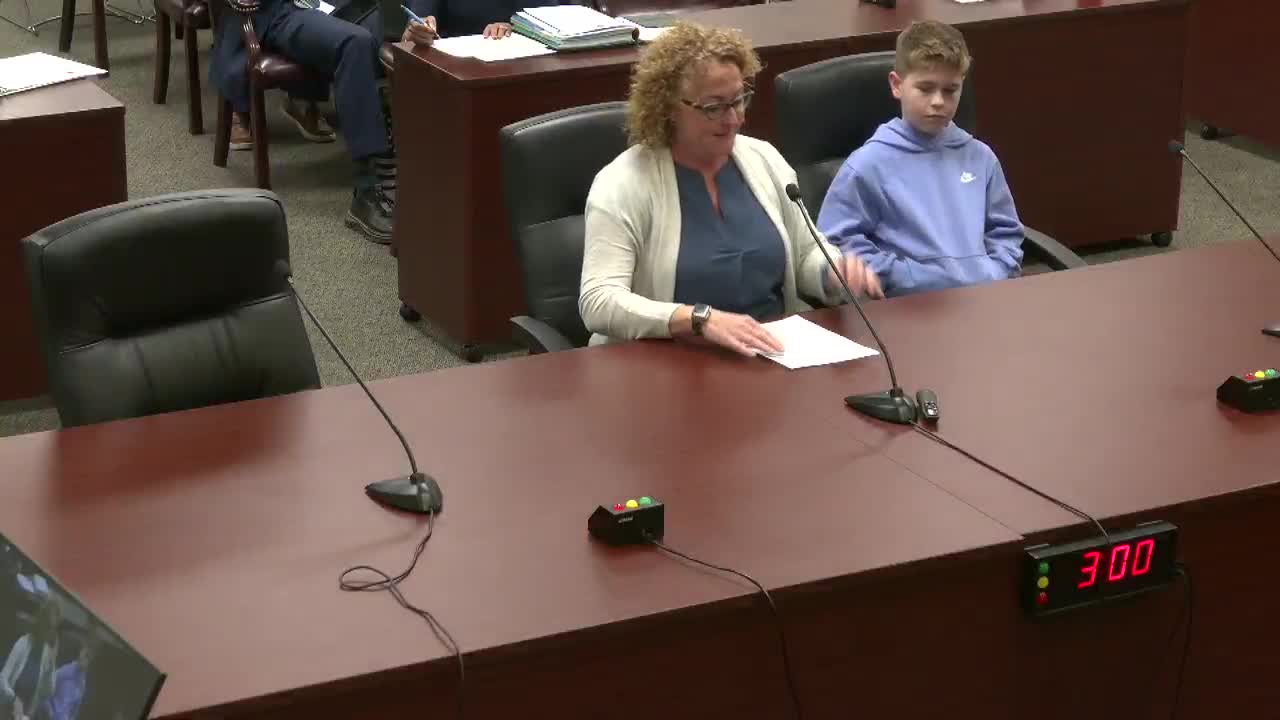Parents urge BCPS to allow remote CGM monitoring to protect students with type 1 diabetes
Get AI-powered insights, summaries, and transcripts
Subscribe
Summary
A parent told the board that BCPS should permit FDA-approved continuous glucose monitor (CGM) remote-monitoring apps so school nurses receive audible alerts and can intervene before hypoglycemia becomes life-threatening, citing Department of Justice guidance and other Maryland districts using the technology.
A Baltimore County parent urged school leaders to allow remote monitoring of students' continuous glucose monitors (CGMs) during the board's public-comment period, saying the policy gap is placing medically fragile students at risk.
Shannon Bonanno described a recent incident in which she received a hypoglycemia alert from her child's CGM and notified the school; she said school staff were unaware of the emergency until the parent's alert. "The only reason he's okay today is because I received an alert from his CGM on my phone and I notified the school," Bonanno said, adding that CGM remote-monitoring apps are FDA-approved and already used by school nurses in Anne Arundel, Howard, Montgomery and other districts.
Bonanno told the board that DOJ guidance interpreting the Americans with Disabilities Act has found that remote CGM monitoring by trained school staff can be a reasonable accommodation for students with type 1 diabetes and that BCPS must implement reasonable accommodations when requested. She said BCPS currently expects staff to rely on students to self-report or on teachers to listen for device alerts in loud classrooms, an approach she described as unsafe for students who can be cognitively impaired during an emergency.
Why it matters: Parents and disability advocates consider remote CGM monitoring a standard-of-care accommodation that can prevent life-threatening emergencies. If BCPS maintains a prohibition on school staff receiving remote audible alerts, families say students with severe medical needs remain at higher risk during school hours.
What the board heard and what is next: The parent asked the district to permit a free, FDA-approved remote-monitoring app on a school-provided device so school nurses receive audible alarms and can act promptly. District staff did not provide a policy change during the meeting; the comment was recorded during the public-comment period for board and staff consideration. The parent provided a contact for PTA units and requested follow-up.
Quotes: "Continuous glucose monitors provide real time blood glucose readings every five minutes and alert caregivers when levels drop so we can treat before it becomes an emergency," Shannon Bonanno said.
Ending: The board did not vote on this matter during the meeting. The public comment provides a record for staff to consider when reviewing health-services policies and ADA accommodations.
